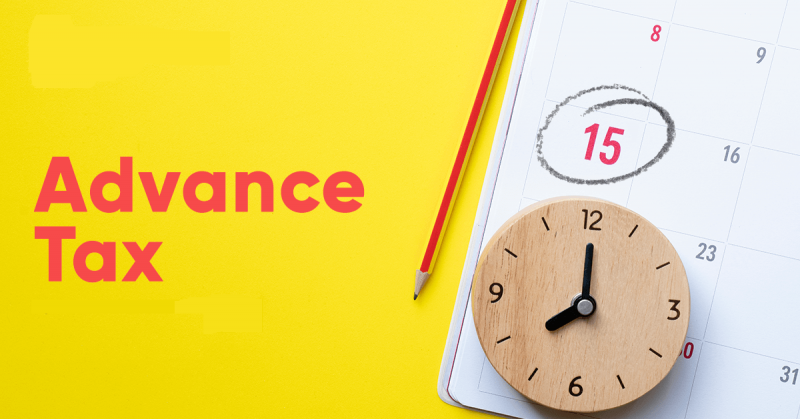Advance Tax
What is advance tax?
“Advance Tax” name itself suggests the tax that’s to be paid up in advance. Advance tax means income tax should be paid in advance rather than lump sum payment at year end. it’s also referred to as “pay as you earn tax”. These payments need to be made in instalments as per due dates provided by the income tax department.
Who should pay the advance tax?
Not every citizen of India has got to pay the advance tax. it’s applicable to certain citizens of India with some conditions. Advance tax applies to all or any taxpayers, salaried, freelancers, and businessmen. Senior citizens, who are 60 years or older, and don’t run a business, are exempt from paying advance tax. So if the entire tax liability of an individual is INR 10,000 or more during a fiscal year then he has got to pay advance tax.
Computation of advance tax
Tax can be computed on the present income as estimated by taxpayer at the income tax rates for the relevant fiscal year . Tax deducted or collected shall be deducted from tax so computed and therefore the balance amount shall be used to compute advance liabilities . Also, any tax reliefs and deductions shall be deducted while computing such liability.
Assesses required to pay Advance Tax
If the income tax liability computed on estimated basis is quite Rs.10, 000 then the assesse is required to pay advance tax.
A resident senior citizen, i.e., an individual of the age 60 years or more during the relevant fiscal year isn’t required to pay advance tax if he doesn’t have any income under the head business/profession.
If the assesse has opted for income declaration under presumptive taxation scheme of section 44AD (for business) and 44ADA (for profession), such tax payers are required to pay advance tax by 15th March of the relevant fiscal year and therefore the payment shall be 100% of the tax liability.
How to file Advance Tax?
Individuals may pay advance tax using tax payment challans at bank branches authorised by the tax (I-T) Department. It are often deposited with the Federal Reserve Bank of India and every one the opposite authorised banks. There are 926 branches in India which will accept advance tax payments. Individuals can also pay it online through the I-T department or the National Securities Depository.
Do not worry if you miss the deadline, because if you fail to pay or the quantity you’ve paid is a smaller amount than the mandated 30% of the entire liability by the primary deadline (15 September), you’ll got to pay an interest. this is often computed @ 1% simple interest per month on the defaulted amount for 3 months. an equivalent interest penalty would apply if you fail to pay the second deadline (15 December). Failing to pay the third and last deadline (15 March) would mean paying 1% simple interest on the defaulted amount for each month until the tax is fully paid.
And just in case you land up paying a higher advance tax than you need to , you’ll receive the surplus amount as a refund. Interest @ 6% once a year are going to be paid by the tax department to the assessee on the surplus amount if the quantity is quite 10% of liabilities .
Try to treat advance tax as an EMI to the tax department, which eventually helps you pay your tax without being stressed about it. Likewise, use the payment of advance tax as a chance to remain a step before your tax liabilities, in order that you’re not left worrying over what proportion you owe to the tax department at the top of the year, you furthermore may save yourself from paying penalties for not paying the taxes beforehand . Moreover, you’ll contribute in your own small way towards nation building whilst the govt receives the advance tax money from you, which successively is employed towards infrastructure development of the country.

